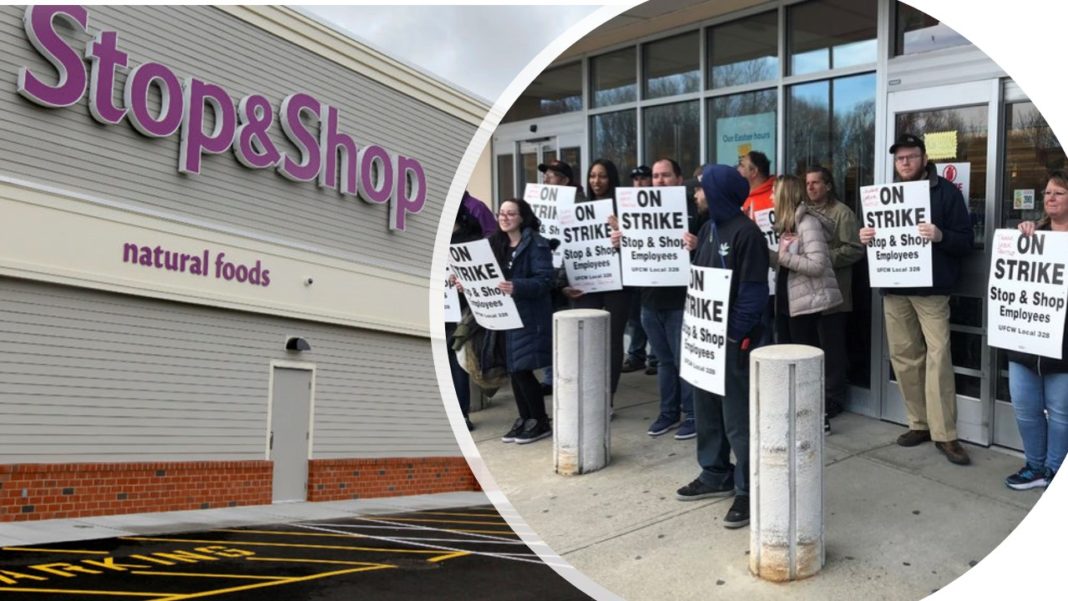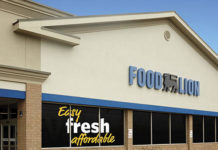The 11-day strike at Stop & Shop last spring cost parent company Ahold Delhaize $345 million, according to Jeff Carr, the retailer’s chief financial officer. Approximately $224 million of sales was lost directly from the work stoppage with an additional $121 million in revenue lost during the ensuing recovery period.
Carr also noted that the company’s overall hit on its underlying income was $100 million That impact reflects the loss of margin on the $224 million. Other contributing impact factors included additional in-store and distribution shrink and increased markdowns.
Carr made his comments on August 7 at the retailer’s analyst conference call following release of its second quarter 2019 financials for the period ended June 29.
However, strong performances from the company’s other U.S. operating divisions – Giant/Martin’s Giant Food (Landover), Hannaford and particularly Food Lion – helped offset the devastating hit at Stop & Shop as the Amsterdam-based retailer eked out a 0.2 percent comp-store sales increase at its 1,971 U.S. supermarkets, 10 more stores than at the end of last year.
Total U.S. revenue was $10.99 billion, but operating income at its U.S. stores decreased 15.3 percent to $369 million. That decline can be fully attributed to the adverse impact of the strike. Moreover, Ahold Delhaize’s underlying operating margin dipped 70 basis points to 3.6 percent.
Carr also acknowledged that pre-strike sales levels at the Quincy, MA chain (ADUSA’s largest brand) had not fully returned.
“The main impact has been on transactions. It hasn’t been on the basket size, which hasn’t really been impacted by the strike. It’s really been getting the last one or two percentage of customers back into the store,” Carr explained.
Stop & Shop has ramped up its marketing and advertising initiatives in recent months in an attempt to attract customers to return to their previous buying patterns.
Six weeks after the strike ended, ADUSA announced that Giant Food president Gordon Reid would be relocating to the Boston area to assume the helm at Stop & Shop which has 416 stores in New England and Metro New York (only the company’s approximately 240 New England stores were impacted by the work stoppage). Reid took the place of veteran Stop & Shop executive Mark McGowan who has left the company.
One of Reid’s most important responsibilities will be overseeing Stop & Shop’s 51 Long Island stores (that number could grow if and when the FTC decides the status of the company’s bid to acquire 37 King Kullen stores in Nassau and Suffolk County which was announced last January).
About $150 million is pegged to improve all current stores on “the Island” and CEO Frans Muller was encouraged by the progress already made by the Long Island market leader.
Under its “Reimagine Stop & Shop” plan, the Long Island upgrades will utilize the learnings gleaned from when the program began in October 2018 at 21 Hartford, CT units. During the conference call, the Dutch retail veteran said among those “learnings” was focusing more on center store and sharpening its pricing.
“We are still in the testing phase, but we learned from the first testing in Hartford to do a better job in Long Island,” Muller stated.
At its other U.S brands, Food Lion’s results continue to excel. The Salisbury, NC merchants posted its 17th consecutive quarters of comp store sales gains as it continues to aggressively remodel its large store fleet (about 1,000 stores) and rollout the chain’s “Easy, Fresh and Affordable” operating and merchandising model. About 80 percent of its stores have now been upgraded with another 115 units targeted for the next six months.
Ahold Delhaize also addressed its digital sales growth. For its most recent quarter, online sales were $249 million, a 14.4 percent increase which it said was achieved mainly by expansion through its Giant/Martin’s and Food Lion’s brands. Approximately 483 stores are now utilizing those click-and-collect links with more than 100 more stores slated to be included before year’s end. About 80 percent of those sales are being delivered by its Peapod unit (ADUSA also utilizes Instacart for delivery services)





